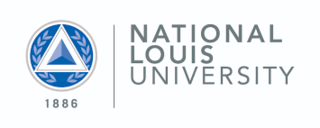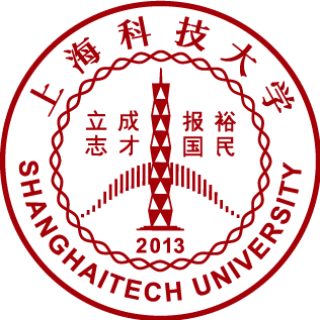
Education is the process of facilitating learning, or the acquisition of knowledge, skills, values, morals, beliefs, and habits. Educational methods include teaching, training, storytelling, discussion and directed research. Education frequently takes place under the guidance of educators; however, learners can also educate themselves. Education can take place in formal or informal settings, and any experience that has a formative effect on the way one thinks, feels, or acts may be considered educational. The methodology of teaching is called pedagogy.
A Bachelor of Education (B.Ed.) is an undergraduate professional degree which prepares students for work as a teacher in schools. In some countries such as Tanzania and Kenya, additional tasks like field work and research are required in order for the student to be fully qualified to teach. It may also be accompanied with or followed by tests for licenses or certifications required for teachers in some areas.
Student financial aid in the United States is funding that is available exclusively to students attending a post-secondary educational institution in the United States. This funding is used to assist in covering the many costs incurred in the pursuit of post-secondary education. Financial aid is available from federal and state governments, educational institutions, and private organizations. It can be awarded in the form of grants, loans, work-study, and scholarships. In order to apply for federal financial aid, students must first complete the Free Application for Federal Student Aid (FAFSA).
Governor's School may refer to:

The Education Program for Gifted Youth (EPGY) at Stanford University was a loose collection of gifted education programs formerly located within Stanford Pre-Collegiate Studies program. EPGY included distance and residential summer courses for students of all ages. Many of the courses were distance learning, meaning that courses were taught remotely via the Internet, rather than in the traditional classroom setting. Courses targeted students from elementary school up to advanced college graduate. Subjects offered included: Mathematics, English, Humanities, Physics, and Computer Science. Stanford Pre-Collegiate Studies is similar to the Center for Talented Youth at the Johns Hopkins University in terms of certain objectives. The EPGY courses themselves were offered by a number of institutions including Stanford and Johns Hopkins.

National Louis University (NLU) is a private university with its main campus in Chicago, Illinois. NLU enrolls undergraduate and graduate students in more than 60 programs across its four colleges. It has locations throughout the Chicago metropolitan area as well as a regional campus in Tampa Bay, Florida, where it serves students from 13 counties in that state’s central region.
Breakthrough Collaborative is the umbrella organization of a collaborative of programs across the United States and in Hong Kong that aim to effect positive change in urban schools. Breakthrough offers high-potential, under-served middle school students the opportunity to participate in rigorous academic enrichment programs throughout the summer and school year. Students make a commitment to participate in the program through middle school and high school and in turn, Breakthrough provides many services to students and their families, ranging from academic enrichment to one-on-one tutoring to high school and college preparation. Additionally, all Breakthrough classes are taught by talented, high-achieving high school and college students from around the country who are interested in the field of education. Through the teacher development program offered by Breakthrough, these young educators become potential candidates for professional teaching and educational leadership positions after college. Teaching at Breakthrough has been named a Top Ten Internship in America by the Princeton Review, as well as other prestigious national organizations, and a 1999 Stanford University report stated that "72% [of Breakthrough teachers] went on to work in other educationally related careers or internships after teaching at a Breakthrough site."
The Cambodia Project (CPI) is a nonprofit organization whose mission is to develop secondary education opportunities for underserved children in rural Cambodia. The Cambodia Project, Inc. is a 501(c)(3) nonprofit organization recognized under the Internal Revenue Code of the United States, Public Charity Status 170(b)(1)(A)(vi).

The Sutton Trust is an educational charity in the United Kingdom which aims to improve social mobility and address educational disadvantage. The charity was set up by educational philanthropist Sir Peter Lampl in 1997 and since then has undertaken over 150 research studies and funded a wide range of practical programmes to support young people in early years, primary and secondary school, and in accessing higher education and the professions. The charity's Chief Executive is James Turner, formerly of the Education Endowment Foundation.
The Tiger Woods Learning Center or TGR Learning Lab is an educational facility established in 2006 by the golfer Tiger Woods in Anaheim, California.
The Oklahoma State System of Higher Education is the state's legal structure for providing public education at the collegiate level. It is a coordinated system of colleges and universities located throughout the state.

The Educational Policy Institute (EPI) is a research organization founded by its current president and CEO, Dr. Watson Scott Swail. EPI is dedicated to high-level research and policy analysis on a variety of educational issues, including the challenges that individuals and families from underserved communities face throughout their educational career.
The Gifted Education Research Resource Institute (GERI) is a multidimensional center dedicated to the study, discovery, and development of human potential. It was founded by John F. Feldhusen in 1977 and is situated in the College of Education, Purdue University in West Lafayette, Indiana. GERI's mission is holistic development of giftedness, creativity, and talent among individuals throughout their lifespan. This is accomplished through enrichment programs for talented youth, graduate programs for future scholars and leaders, professional development and coursework for educators, and ongoing research on the psychology of giftedness, creativity, and talent development. GERI faculty and staff work with P-12 educators in developing and improving services for gifted, creative, and talented children, as well as training school teachers and administrators in gifted education. In addition, GERI has developed several programs for talented youth. The Super Saturday program, a six-week enrichment program, was created in the spring of 1976. In 1977, GERI began Summer Residential Camps, aimed at providing a preview of college life to talented students.

Daniel R. Porterfield is an American nonprofit executive, academic administrator, and government official serving as the president and CEO of the Aspen Institute. Porterfield previously served as the 15th president of Franklin & Marshall College, senior vice president for strategic development and English professor at Georgetown University, and communications director and chief speechwriter for the U.S. Health and Human Services Secretary during the Clinton Administration.
Structural inequality has been identified as the bias that is built into the structure of organizations, institutions, governments, or social networks. Structural inequality occurs when the fabric of organizations, institutions, governments or social networks contains an embedded bias which provides advantages for some members and marginalizes or produces disadvantages for other members. This can involve property rights, status, or unequal access to health care, housing, education and other physical or financial resources or opportunities. Structural inequality is believed to be an embedded part of the culture of the United States due to the history of slavery and the subsequent suppression of equal civil rights of minority races. Structural inequality has been encouraged and maintained in the society of the United States through structured institutions such as the public school system with the goal of maintaining the existing structure of wealth, employment opportunities, and social standing of the races by keeping minority students from high academic achievement in high school and college as well as in the workforce of the country. In the attempt to equalize allocation of state funding, policymakers evaluate the elements of disparity to determine an equalization of funding throughout school districts.p.(14)

ShanghaiTech University is a research university in Shanghai, China. Its campus is located in the Zhangjiang Hi-Tech Park in Pudong with an academic focus on STEM research. It has five schools and three research institutes and is backed by the Shanghai Municipal Government and Chinese Academy of Sciences. In 2018, it had 1433 undergraduates, 1788 Master's and PhD students, and 485 faculty members.
The history of the Harvard Extension School dates back to its founding in 1910 by Abbott Lawrence Lowell. From the beginning, the Harvard Extension School was designed to serve the educational interests and needs of the greater Boston community, but has since extended its academic resources to the public, locally, nationally, and internationally.
Sponsors for Educational Opportunity (SEO) is a nonprofit organization providing supplemental educational and career support to young people from underserved communities. SEO has been the recipient of numerous awards and distinctions, including five four-star ratings by Charity Navigator, the College Board's 2011 CollegeKeys Compact Innovation Awards, and selection as one of the top-performing non-profits in the country by Social Impact Exchange's new giving platform, S&I 100. Henry Kravis was named chairman of the organization in 2014.
The Jack Kent Cooke Foundation is the largest scholarship provider in the United States. The private, independent foundation is dedicated to advancing the education of exceptionally promising students who have financial need. It offers the largest scholarships in the U.S., comprehensive counseling and other support services to students from 8th grade to graduate school. Since 2000 it has awarded over $175 million in scholarships to nearly 2,300 students and more than $97 million in grants to organizations that serve outstanding low-income students.
Educational interventions for first-generation college students (FGCS) are programs intended to provide resources and make education more attainable and desirable for FGCS and their families. A study by Alex Casillas has identified that "FGCS […] face greater pressure not to go to college, either because of a lack of role models or because of pressure to contribute to their family’s financial needs." Many interventions are being explored to lower and/or remove the fears and struggles FGCS face regarding their education. These interventions are intended to bridge the gap between FGCS and their educational experience by providing them with the access to information and resources their non-first-generation peers already have. This article discusses several programs currently being implemented, including AVID, GEAR-UP, and after-school programs, in addition to non-profit college access programs and privately funded organizations that work to address access to higher education for underprivileged and first-generation students. There is also critical discussion regarding the pedagogical role of these educational interventions in building a sense of value and belonging in its students.






